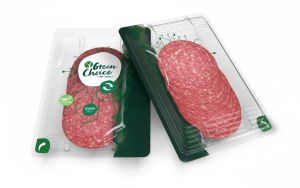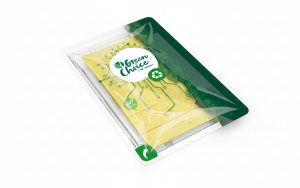
High Security PET/PE Bottom Films with Recycled Content
- PET/PE laminate structure
- 250-500 µm thickness
We enhance circularity by using recycled raw materials. Replacing virgin resources, helping conserve fossil fuels and lower the carbon footprint of your products.
Made with PCR (post-consumer) recycled materials.
Compliant with food law regulations. Materials from certified processes or according to ISCC+ mass balance approach.
CO2 data to support transparent reporting over time.
Filter by:


We couldn’t find a product that fits all selected filters.
That doesn’t mean the right solution isn’t available. Talk to one of our specialists or browse all products.
KEY BENEFITS
Our recycled-content films deliver the same protection and machine efficiency as conventional materials, while reducing the use of fossil resources.
The integration of recycled materials lowers the carbon footprint of the packaging film.
PPWR requires minimum recycled content in packaging as of 2030 – we will be ready in time.
Produced under strict standards and certified for direct food contact.
Consistent sealing, clarity, and barrier properties for modern food applications.

ISCC PLUS ensures full traceability of circular materials across the entire value chain in the food and chemical sectors. Since 2021, Wipak has achieved ISCC PLUS certification for multiple sites across Europe. Today, five sites are certified:
This certification guarantees that circular materials in our packaging films are responsibly sourced and certified following a mass balance approach.
We’re here to help
We’ve passed your message to the right team.
You’ll hear from us as soon as possible.